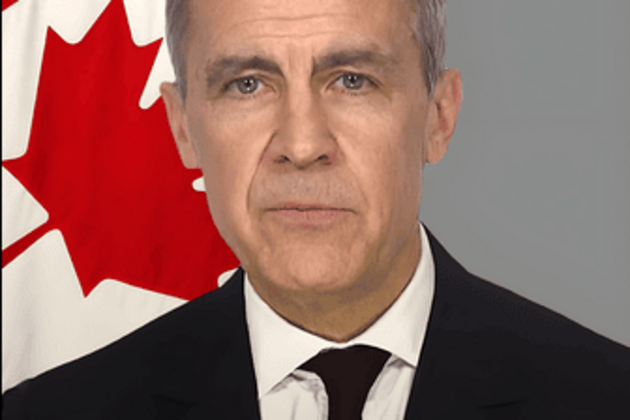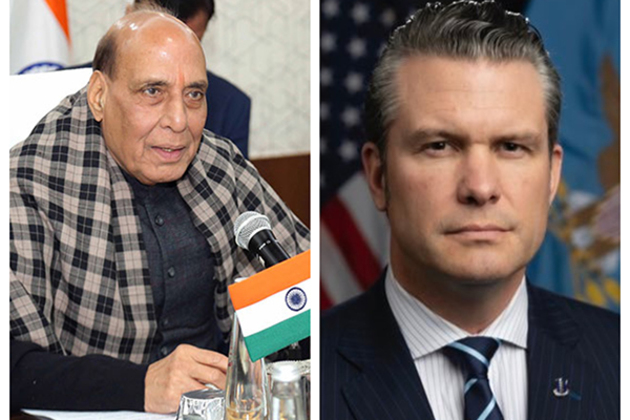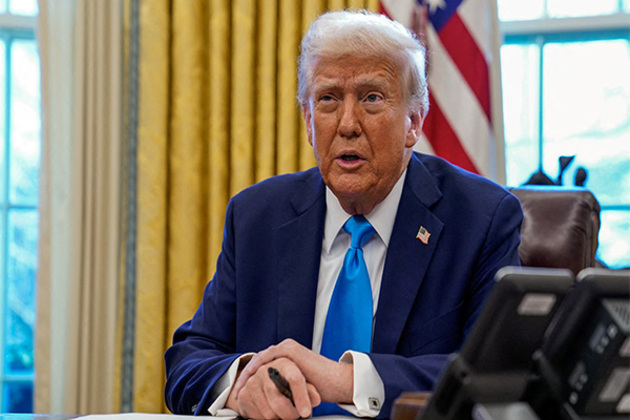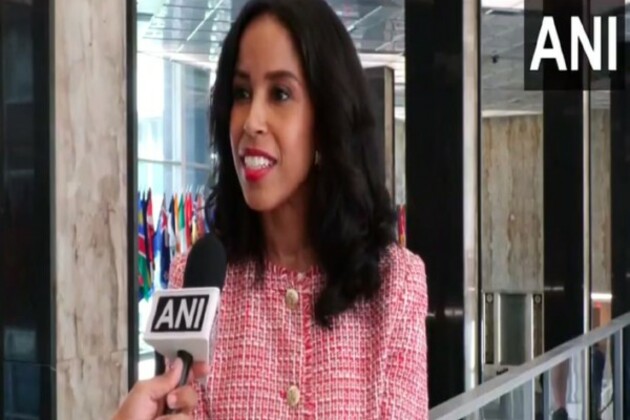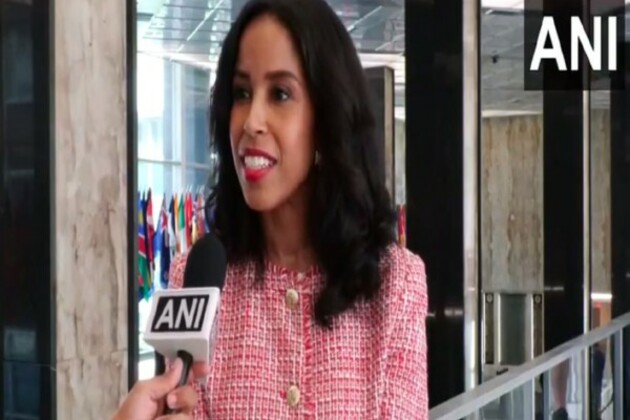Helly Nahmad The Alleviation of Poverty
7Newswire
06 Feb 2023, 13:22 GMT+10

In a world where poverty is on the increase and leads to an excessive number of individuals who are not in school, have dropped out of school, or are illiterate, literacy is a viable pathway for lowering poverty to its minimal minimum. We will discuss the many ways that literacy may help to lessen the incidence of poverty in today's society in our chat with Helly Nahmad.
How does literacy improve the average person's level of living?
A: Illiteracy is a key socioeconomic factor in poverty. In developing countries, one in two individuals lacks literacy, and the situation is even worse in rural areas, especially for women and children. UNESCO is attempting to advance initiatives in this area and show how literacy reduces poverty. According to UNICEF, children and youth who live in rural areas "have limited access to educational opportunities or programmes for skill development, and generally, the quality of education in rural areas is often low due to poverty and limited investment resources."
The majority of children leave school after completing elementary school, depriving them of the literacy and life skills they need to survive. Literacy is a fundamental human right and the foundation for lifelong learning, claims UNESCO. Given that it has the power to alter lives, it is essential for social and human growth. A literate community is an active one that engages in discussion and idea sharing. However, illiteracy keeps individuals from improving their life and might result in loneliness and violence. Understanding literacy issues properly is crucial for reducing global illiteracy. The main goal of UNESCO is to encourage governments in poor countries to recognise the importance of education in fostering change and development, as well as in reducing poverty and empowering people.
"The administrative authorities of these countries must stress the development and provision of access to basic education to children under the age of 15," a spokesperson of UNESCO said. Governments should provide people who dropped out of school or never had a formal education literacy programmes and training in key skills. In order to improve education, reduce illiteracy rates, and alleviate poverty, UNESCO also plans to introduce "livelihood-oriented adult non-formal education programmes" this year in conjunction with other community-based organisations. The initiative, which has been a priority for UNESCO for more than 60 years, will get fresh vitality this year with the introduction of a programme concentrating on livelihood-oriented initiatives.
Helly Nahmad, please. How can literacy benefit the underprivileged?
It seems a simple assertion to make to claim that reading and writing may improve one's quality of life. On the other hand, is it as obvious that 171 million people would be able to escape poverty if everyone was literate? These apparently little skills have the power to drastically alter our globe. The benefits of literacy go well beyond the walls of any one school, and they include:
- The Literacy Economy
The single most crucial component in determining the health of an economy is the ability of a people to spend; this can only be done by expanding opportunities, promoting skill development, improving working conditions, and raising salaries.
The most effective technique for eradicating poverty is the creation of new job chances, and raising educational opportunities is the only way to achieve this goal. The amount of money gained via salaries is expected to increase by 10% on average, and by as much as 13% in places like sub-Saharan Africa, with every additional year of schooling.
The statistics are self-evident. The yearly cost of illiteracy to the world economy is estimated to be $1.19 trillion. On the other side, literacy promotes economic stability in developing nations and fights poverty.
- Health and literacy
In the area of healthcare, literacy is a powerful tool against poverty. Literate persons are better able to understand health-related concerns and better inform themselves about medical care. In underdeveloped countries, where illness incidence may exacerbate a vicious cycle of poverty, this is of the highest importance. The data that relate literacy with generational health lead to the following conclusions:
Reading and writing skills are protective factors against the spread of contagious illnesses, and education for mothers may help lessen the severity of the effects of illnesses like pneumonia. The newborn mortality rate is projected to decrease by 9% for every year of acquired schooling. Children who can read and write have a 24 percent lower risk of being underweight or malnourished.
- Literacy Strengthens
Disparity stifles economies and prevents generational advancement, particularly when it comes to gender inequality. Around two-thirds of the world's illiterate population are women. The annual marriage of 15 million girls under the age of 18 should not be shocking given the destructive cultural dynamics in so many underdeveloped nations. These girls often think that this is their only option when they are unable to finance a quality education.
Women who complete their education become independent and have more influence over their lives. Education fosters individuals' feeling of independence as well as their capacity for both creative and critical thought, both of which support a more vibrant society and economy. According to the World Bank, women with greater levels of education are more likely to marry later in life, have fewer children, and are at a reduced risk of illness.
- Community and Resilence
The expansion of options provided by literacy makes it a potent tool against poverty. Millions of individuals are imprisoned in a dungeon of uncertainty without the capacity to read and write. Reading and writing have increased one's self-confidence, helped them make more educated decisions, and given them access to new job chances.
Additionally, literacy provides alternatives and detours from the potential for participating in crime or becoming a child soldier. One of the most crucial elements in society is literacy, which cuts the likelihood of violent crime and robbery in half.
Unprecedented levels of resilience are needed to overcome these difficulties. One acquires the willpower required to build it via education. Given that 123 million individuals worldwide between the ages of 15 and 24 lack literacy, literacy has never been more crucial.
Helly Nahmad,please. How do you think literacy will combat poverty, in your opinion?
A: According to newly available data, which was reported in the Global Education Monitoring Report issued by the UN, an increase of only two years in the typical number of years spent in school may help raise around 60 million people out of poverty. The greatest way to start is by raising literacy rates if ending poverty is the ultimate goal. The achievement of other dimensions of progress is possible thanks to literacy.
What would you want to say in closing, Helly Nahmad,?
A: Literacy helps people by giving them the opportunity to develop the skills required to sustain themselves and their families, but it also benefits future generations by raising their expectations for themselves and their feeling of self-worth. Similar to how a duck's feet are effective against the water underneath them, literacy is a potent weapon against poverty. Even if it isn't always apparent, a lot of work is put out underneath the surface. Share
Share
 Tweet
Tweet
 Share
Share
 Flip
Flip
 Email
Email
Watch latest videos
Subscribe and Follow
Get a daily dose of Illinois Intelligencer news through our daily email, its complimentary and keeps you fully up to date with world and business news as well.
News RELEASES
Publish news of your business, community or sports group, personnel appointments, major event and more by submitting a news release to Illinois Intelligencer.
More InformationNorth America
SectionCanada-US trade talks resume after Carney rescinds tech tax
TORONTO, Canada: Canadian Prime Minister Mark Carney announced late on June 29 that trade negotiations with the U.S. have recommenced...
US, India to ink 10-year Defence Framework by year end
Washington D C [US], July 3 (ANI): India and the United States of America have agreed to sign a new 10-year US-India Defence Framework...
Federal judge blocks President Trump's asylum ban at the Southern border
Washington, DC [US], July 3, ANI: A federal judge on Wednesday blocked United States President Donald Trump's asylum ban at the Southern...
US-Vietnam trade deal offers cautionary lessons for India, says GTRI Report
New Delhi [India], July 3 (ANI): A new trade agreement between the United States and Vietnam is raising concerns and offering key lessons...
US student visa applications have opened, says State Department official
Washington DC [US], July 3 (ANI): US State Department Deputy Spokesperson Mignon Houston on Wednesday (local time) stated that student...
India is an essential partner, we want fair and reciprocal trade: US State Department's Mignon Houston
Washington DC [US], July 3 (ANI): US State Department Deputy Spokesperson Mignon Houston on Wednesday (local time) said that India...
International
SectionTurkey, France battle wildfires amid early Europe heatwave
ISTANBUL/PARIS/BRUSSELS: As searing temperatures blanket much of Europe, wildfires are erupting and evacuation orders are being issued...
Venetians protest Bezos wedding with march through the town
VENICE, Italy: Over the weekend, hundreds of protesters marched through the narrow streets of Venice to voice their opposition to billionaire...
New French law targets smoking near schools, public spaces
PARIS, France: France is taking stronger steps to reduce smoking. A new health rule announced on Saturday will soon ban smoking in...
Trump hints at DOGE investigation of Musk subsidies
WASHINGTON, DC - U.S. President Donald Trump on Tuesday claimed Elon Musk's success has been built on government subsidies. Without...
Native leaders, activists oppose detention site on Florida wetlands
EVERGLADES, Florida: Over the weekend, a diverse coalition of environmental activists, Native American leaders, and residents gathered...
Beijing crowds cheer AI-powered robots over real soccer players
BEIJING, China: China's national soccer team may struggle to stir excitement, but its humanoid robots are drawing cheers — and not...

